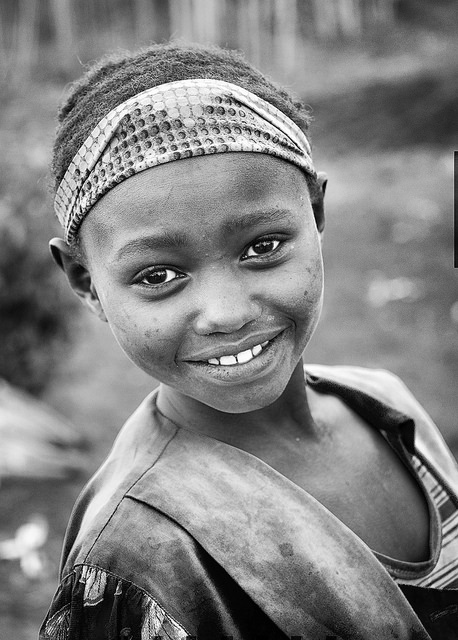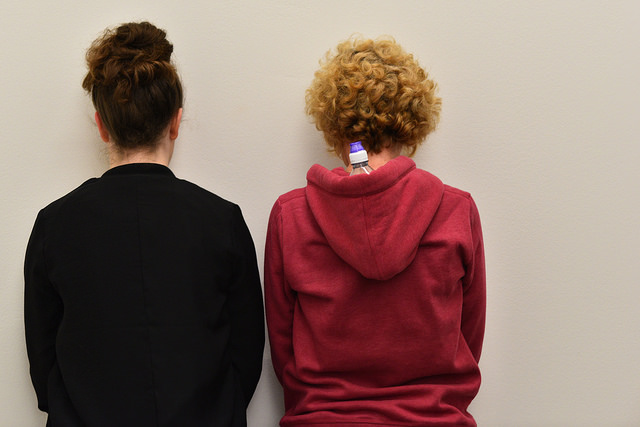opinion
A compassionate approach to self-criticism
I recently had the privilege of attending a workshop facilitated by renowned compassion specialist Paul Gilbert, Professor of Clinical Psychology at the University of Derby. His focus for this event was ‘A compassionate approach to the forms and function of self-criticism’ – a fascinating insight into how bringing compassion can alleviate the critical judgment of ourselves that limits our self-belief and our performance.
Professor Gilbert comments that ‘scientific study has found the core of compassion to be courage’ and that ‘a standard definition of compassion is, “a sensitivity to suffering in self and others with a commitment to try to alleviate and prevent it” ……The courage to be compassionate lies in the willingness to see into the nature and causes of suffering – be that in ourselves, in others and the human condition. The challenge is to acquire the wisdom we need to address the causes of suffering in ourselves and others.’
Compassion: a hard business issue
Professor Gilbert makes a link between compassion, somatics (how the effects of compassion show up in the body) and neuroscience – i.e. how the brain works. Far from being a soft issue, this scientific perspective is directly relevant to how organisations can boost their effectiveness.
Self-criticism
Self-criticism is no respecter of seniority or role: it is to be found at all levels of an organisation, and its impact can manifest as stress, lack of engagement, lack of motivation, overwork, lack of assertiveness, lack of authority – and indeed a whole host of other negative responses and behaviours.
Compassion, however, can do much to restore trust, confidence and a sense of safety in the individual and in the system, and hence to boost effectiveness: when we feel safe we’re more prepared to take initiative and risk, to be creative and to take responsibility. When we feel unsafe we’re more likely to close down, take fewer risks or innovate.
Presence and acceptance
It seems to me that compassion is partly about the capacity to be present with another person, setting aside judgments, biases, assumptions and fears. It also means avoiding thoughts that tempt us into thinking we know what’s best for that other person – in other words, bringing awareness and acceptance.
Organisational life
Compassion may be a concept that is far distant from what has come to be normal life in many organisations. How many managers and leaders bring a compassionate approach to themselves and to others – an acceptance of people as they are, with all their flaws and problems, and a preparedness to address suffering and the causes of suffering? Yet acceptance doesn’t mean not wanting improvement or change. Far from it: all successful change starts with awareness of what is.
Mindfulness
It’s just a very small step from here to mindfulness – as Jon Kabat-Zinn defines it, awareness that arises through paying attention, on purpose, in the present moment, non-judgmentally. As Professor Gilbert comments, working with a focus on compassion is about paying attention to paying attention. In parallel, mindfulness allows us to maintain focus on our intentions and not allow ourselves to be distracted.
Commercial organisations from Google onwards have embraced mindfulness as part of their culture, and mindfulness practitioners know that kindness and compassion towards their own experience means that they become more compassionate to themselves and to others. In the process, their frustration and impatience diminish, and their creativity and equanimity grow. The energy that might have been spent on negative emotions and criticism of self and others is instead channelled to more productive work and healthier relationships.
What can leaders do?
In my experience of working with leaders with heavy work agendas, especially where the stakes are high, those who even begin a journey down the path of mindfulness and compassion gain benefits they never dreamed of – and so do those around them. Leaders can begin by raising their awareness of the impact of their attitudes on their teams (do they notice how people respond to them? Are they aware of the challenges people have in fulfilling their roles – and the effect of what might be going on for them outside work? Do they wonder about what it takes for the individual to deliver on their role? How often do they actually smile at team members?). To what extent might they carelessly or unintentionally be causing suffering? Some honest reflection can serve the leader well here.
What can reports do?
And reports can benefit from becoming more aware of what they’re expecting of themselves, the assumptions they’re making, the messages they’re giving themselves about their value – and how they might do more to be kinder to themselves. Indeed what might they do to contribute more powerfully to a business culture that consistently considers how individuals might carelessly or unintentionally be causing suffering?
Photo by Rod Waddington via Compfight
Compassion: a business issue
Paul Gilbert, Professor of Clinical Psychology at the University of Derby, defines compassion as "a sensitivity to suffering in self and others with a commitment to try to alleviate and prevent it" – and he notes that the core of compassion is courage. Far from being a soft issue, his scientific perspective is directly relevant to how organisations can boost their effectiveness. Compassion can do much to restore trust, confidence and a sense of safety in the individual and in the system – and it’s partly about both presence and acceptance, with a close link to mindfulness. Leaders and their reports can take practical steps to boosting both their self-compassion and their compassion towards others.
Read more »Building resilience in a tougher world
We all - and particularly leaders - seem to be experiencing more and more pressure in our modern world. The need to build and maintain resilience seems more pressing than ever. By ‘resilience’ I mean not so much the ability to simply cope, but more the capacity to consistently adapt to changing circumstances, to learn from adversity, and to manage intense emotions and uncomfortable thinking in oneself and others. We need to learn to flex in our responses to adversity.
Read more »'Just being': my article in Coaching at Work
Transactional coaching objectives are irrelevant to some of my clients. 'Doing’ keeps them out of trouble but offers no fulfilment or satisfaction, whereas - ironically - 'being' and objective-free coaching offers them the time and space that are essential for them to profoundly engage with their coaching objectives
Read more »Honesty, wellbeing and mental health
Mental ill-health in organisations may be a taboo subject and may carry a stigma. Sufferers may suffer in silence until their condition worsens to the point of crisis. When crisis does strike, in addition to individuals’ difficulties, the organisational upheaval and cost can be significant, as can the damage to working relationships. However, in an open culture people are more likely to feel engaged and to give of their best, and evidence shows that business results are much better than in cultures where the issue is not faced. It is the coach's responsibility to work with whatever shows up - but not to aim to heal or cure.
Read more »A sense of belonging
The deepest human need is to belong. A strong sense of belonging and connectedness is positively associated with wellbeing, happiness and mental health. Feelings of belonging are understood to influence an individual’s identity and the extent to which they feel accepted, respected, valued for who they are - and these feelings in turn, by strengthening relationships, impact on engagement, effectiveness and productivity
Read more »Confidence, effectiveness and systems
Confidence that is depleted – which often results from an individual interpreting an external event or behaviour, and believing (albeit unconsciously) the message that they construct from it – leads very easily to effectiveness that is depleted. Looking outwards from the individual into their environment and the systems of relationships they are part of is often a more elegant and rapid process, offering more sustained and richer outcomes for rebuilding and re-resourcing, than cognitive approaches.
Read more »Stress, relationships and business results
Line managers can unwittingly create damaging stress in the relationships they have with their reports. This can come from their modelling themselves against others whose values they don't share - and once they allow themselves to be their authentic selves their working relationships can be transformed. Systemic coaching blended with comfort working with mental health issues can resource the client in valuable ways.
Read more »Leadership in professional service firms
Leadership is particularly complex and demanding in professional service firms such as law and accountancy. In such firms not only is profit generated through each fee-earner's billable hours, but the distribution and clarity of power is less clear, more diffuse and less demarcated than in other organisations. Leadership is an ambiguous matter of high autonomy and yet often high consensus.
Read more »A Bigger Conversation
Relationships - between people, and between people and events, behaviours, beliefs, cultures and outputs - are the key to organisational health. Sometimes skilled, capable and experienced leaders don't seem fully able to occupy their authority, sometimes the same challenge seems to recur repeatedly. Such challenges may require a Bigger Conversation: a conversation that addresses not just individuals or individual issues, but which sees them as an ecosystem.
Read more »Influence, impact and culture change: a systemic view
When a new broom comes in to a senior role with high expectations, but is inexplicably unable to occupy their authority, the situation can benefit from a systemic constellations perspective. This means looking at what might have been ignored in the organisation’s remembering, what or who might have been excluded or unacknowledged - and especially what might not have been acknowledged about the contribution of a previous occupant of the role. Energy is then released and the leader is freed up to do what they do best.
Read more »











